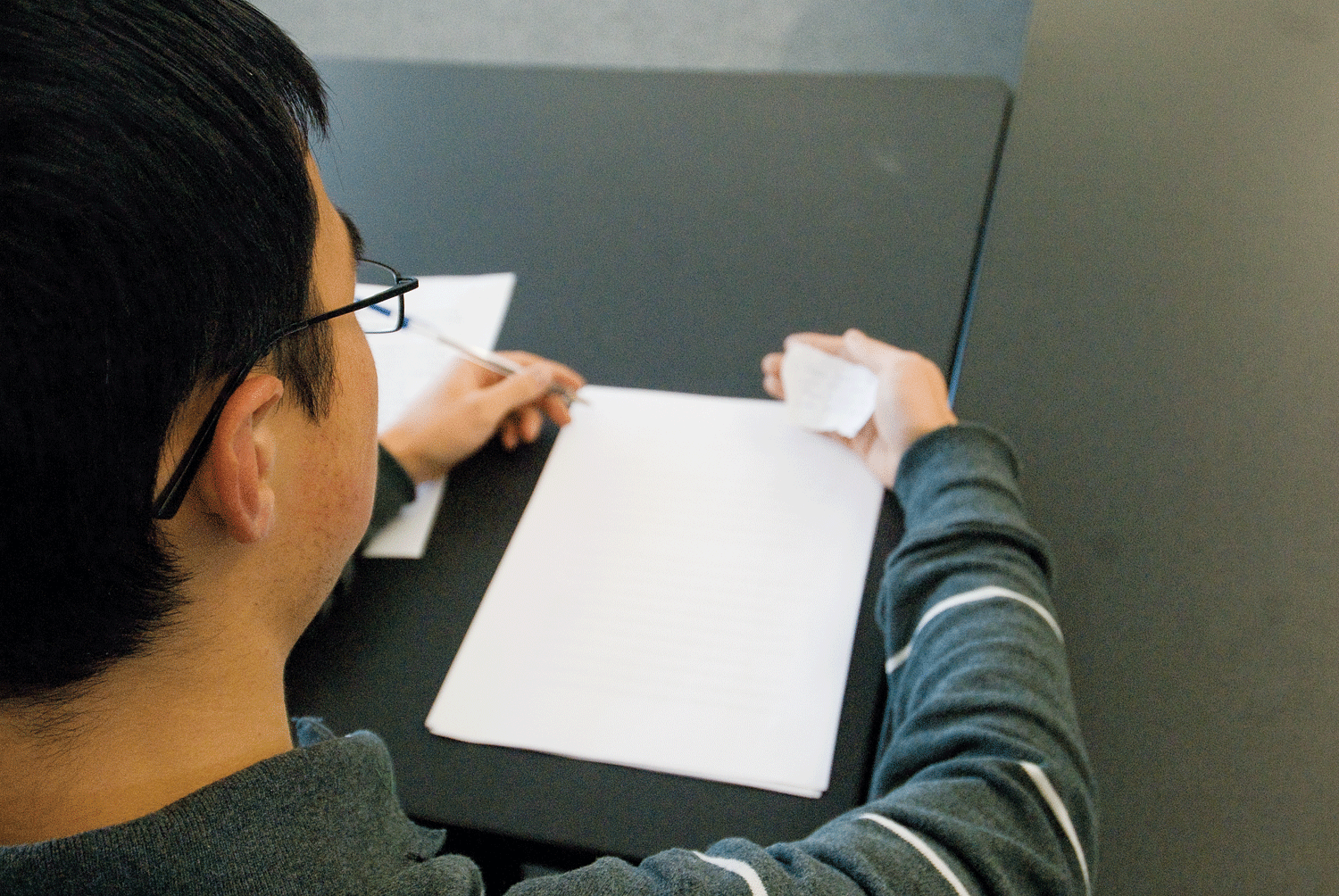Yuni Kim
Assistant News Editor
As essay deadlines and exam periods loom, many students feel the urge to take up last-minute cram sessions and pull all-nighters to better prepare.
Others, however, are instead looking at cheating as a viable option.
A female student who wished to remain anonymous admitted to cheating on a quiz in one of her courses, and said the presiding instructor
actually caught her in the act.
“My friend and I copied each other’s answers,” she said. “The instructor caught us, but told us after. He told us to be careful because
next time he catches us, he will bring it up to be judged.”
She noted the decision to cheat was not a premeditated move.
“I don’t know why I did it. We just did it to help each other,” she said
Norma Sue Fisher-Stitt, associate vice-president of academic learning initiatives, thinks desperation may be one of the major reasons students resort to academic dishonesty.
“It becomes desperate because they have too many things due, and then it becomes a time management issue and students panic,” she said. “So they become overwhelmed and make poor decisions.”
Some students, like second-year political science major Gayle Mcfadden, refuse to cheat not because they fear getting caught, but because they think it intellectually bankrupt.
“What’s the sensibility of paying for a class to learn something amazing when all you’re going to do is cheat? What are you really learning? And if you’re going to cheat at that, what else are you going to cheat at?” said Mcfadden.
“It’s certainly something I don’t feel comfortable doing,” he continued.
“Being able to produce something of value and of your own words is a lot more valuable than someone else’s.”
According to Ros Woodhouse, academic director of the Centre for the Support of Teaching, every instructor has different ways of initially approaching academic dishonesty.
“I think the faculty is very diverse in the way they handle these things,” she said. “But they [should] be concerned because it diminishes what the student can learn and degrades the integrity of the university.”
“There is a university-wide policy on academic integrity,” she continued.
“There is an initial meeting between the instructor and the student,
along with a third-party mediator.
From there, it may go higher up in the system to the [Senate appeals
committee].”
Fisher-Stitt also emphasized that faculty members are asked to avoid assigning the same project every year to prevent students from copying
the work of course graduates.
She noted statistics related to academic dishonesty vary greatly from faculty to faculty.
“Surprisingly, in one of the faculties, assignments that have the most cases of academic dishonesty are the ones that are worth five percent
or less,” said Fisher-Stitt. “[Students] might be thinking that since these assignments are weighed less than, say, essays or final exams, they just want to get them out of the way as quickly as possible.”

Academic dishonesty an ongoing issue




